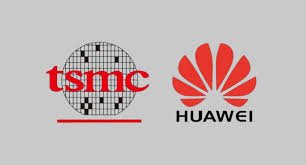Islamabad, Nov 11: TSMC Suspends Chip Supply to Chinese Companies Amid Huawei Controversy, Impact on Tech Supply Chain Intensifies. The U.S. Department of Commerce has instructed TSMC to halt the supply of advanced chips to Chinese clients. This directive comes after a TSMC chip was found within a Huawei processor, which has been restricted for years.
Authorities are looking into whether third-party companies are supplying prohibited chips to Huawei, which has been subject to ongoing U.S. trade limitations.
For many years, the U.S. government has prohibited Huawei from directly acquiring advanced chips from TSMC. However, recent discoveries indicate that a third-party supplier might have provided TSMC-manufactured chips to Huawei. By suspending shipments, U.S. officials hope to stop Huawei from gaining indirect access to restricted technologies.
These advanced chips are frequently used in artificial intelligence applications, which the U.S. closely monitors. Additionally, the U.S. imposes restrictions on the export of AI-related chips from American firms such as Nvidia to Chinese customers. TSMC has notified affected clients that shipments will be on hold starting Monday.
The U.S. government intends to prevent companies from circumventing export restrictions and supplying sensitive technology to China. In a statement, TSMC affirmed its commitment to “complying with all relevant laws and regulations, including applicable export controls.”
This shipping halt underscores the escalating technological tensions between the U.S. and China. The U.S. views AI and other high-tech sectors as vital for sustaining its competitive edge, leading it to enforce stringent measures to limit China’s access to these advancements.
The U.S. has specifically focused on Huawei due to its connections to the Chinese government and its significant role in 5G and AI technologies. This shipment suspension could impede Huawei’s progress in these essential fields. Through this action, the U.S. continues to protect its technology industry from perceived national security risks.



